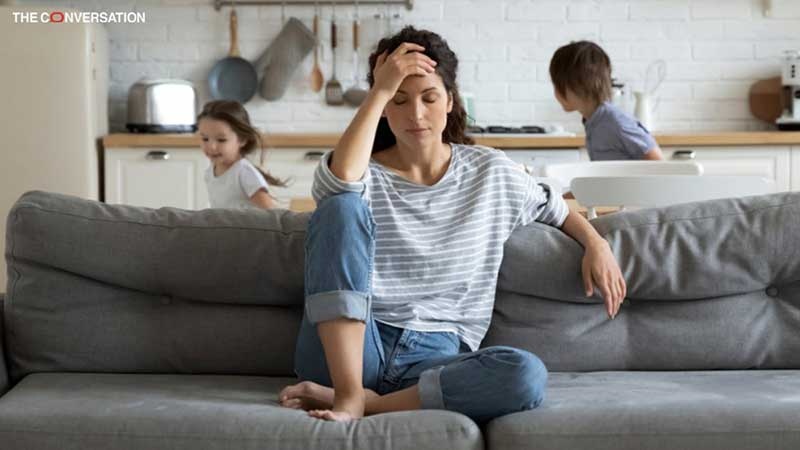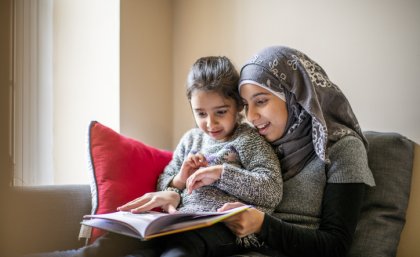Every neighborhood has a culture, each family has their own values, every individual parent has their own belief system, and meanwhile all children are trying to find theirs. The lesson in that statement is rooted from the concept of autonomy. I often say that it is difficult to practice family therapy without all members present. As a professional counselor, I don’t always get to work with the family in its entirety. The practice of accommodation, patience, empathy and vulnerability are essential to make the family system work. I will be highlighting the relevance of these concepts in this article to parenting during the struggles of this pandemic.
Accommodation:
During the past 3 months, everyone’s morale has been challenged. We have been presented with new “opportunities”, we are always on the go, and we need somewhere safe to just stop. Our home (our family) is supposed to be that place. A place to rest our bodies and minds, refuel and be with those we truly care about. For many families, the home has become an all-out war zone. But it doesn’t have to be that way.
 Our society is heavily built on routine and instant gratification. For example; we work, we get paid; we need toilet paper, it used to be readily available. The COVID-19 guidelines have stirred up our norms. In order to accommodate the new normal, we have to accept that we are no longer in control. I want to offer some guidelines to help you accommodate. Practice accountability and identify your complacencies. Complacencies are harmful to the family system because of its subtle nature. Complacency is a feeling of quiet pleasure or security, often while unaware of some potential danger, defect, or the like. Complacencies expose the mentality that “everything is great, our family doesn’t have any issues and we are perfect”. This type of thinking enables passiveness and when we are passive, we let our guard down. We were not prepared for this pandemic, it takes patience and hard work to navigate through these trials.
Our society is heavily built on routine and instant gratification. For example; we work, we get paid; we need toilet paper, it used to be readily available. The COVID-19 guidelines have stirred up our norms. In order to accommodate the new normal, we have to accept that we are no longer in control. I want to offer some guidelines to help you accommodate. Practice accountability and identify your complacencies. Complacencies are harmful to the family system because of its subtle nature. Complacency is a feeling of quiet pleasure or security, often while unaware of some potential danger, defect, or the like. Complacencies expose the mentality that “everything is great, our family doesn’t have any issues and we are perfect”. This type of thinking enables passiveness and when we are passive, we let our guard down. We were not prepared for this pandemic, it takes patience and hard work to navigate through these trials.
 Patience:
Patience:
This is a challenging time for everyone. Effective communication is essential. The most important thing right now, is the health and well-being of your child; the less conflict, the better. Get on the same page with your partner about parenting approaches. Have frequent discussions about the safety and rules surrounding COVID-19. The guidelines change often so just one discussion with your partner won’t suffice. It’s an ever evolving situation so check in often. Be sure to address differences in parenting styles. For those living in single parent homes, reach out to your closest friend or a relative who you trust. If you don’t have those resources, reach out and ask questions to your network (i.e., Madison Moms). Grant yourself time to make decisions for you and your children. COVID-19 isn’t going anywhere in the near future, so be patient and be aware.
 Empathy:
Empathy:
Empathy means to see someone else’s perspective from their point of view. However, it is not required that you share the same feelings as the person you’re trying to understand in order to achieve empathy. For example, effective empathy as a counselor would be to understand why my patient is crying or why they are mad without getting emotionally involved. If I am emotionally reckless with them, I am no longer that support beam for their weight. For parents, that can be a struggle because you are emotionally connected to your loved ones. Your job is two-fold: sometimes your loved ones need you to be strong and not feel the same emotions they have. But there is a place for your emotions to be unveiled. Strive for objectivity: listen to your loved ones without the influence of your personal biases. If the struggles of your loved ones impacts you, don’t suppress those emotions. Vulnerability and empathy can be a powerful combination.
Vulnerability:
To quote Brene Brown, “When we hold those babies in our hands, our job is not to say, look at her she’s perfect.” Brene goes on to say, “That’s not our job, our job is to look at them and say, you’re imperfect, you’re wired for struggle. But you are worthy of love and belonging.” When we are vulnerable we are transparent, we express uncertainty and risk exposure. Allow yourselves to be open to new experiences, yet be mindful of the risks. Be aware of expressing genuine emotions when needed and avoid suppressing your feelings. As parents, you might believe that you need to shield your children from negative or uncomfortable emotions. However, this could serve as a teaching moment for you and your children.

I have seen an increase in my patient’s anxiety, depression and panic over the past 3 months. Particularly in parents trying to stay above water during this pandemic. Much of the time, the common denominator is hopelessness. I encourage you to help your children reacquaint themselves with the world around them. Use effective communication with your significant other, be safe and take care of yourself. Maslow’s Hierarchy of Needs is a great place to start!
________________________________________________________________________
 Zeus was raised in Janesville, WI. He earned his Bachelors degree in Psychology from the University of Wisconsin – Madison and has a Masters of Science in Counseling from the University of Wisconsin – Whitewater. Zeus says he models his counseling approach after the great Coach K from Duke University Basketball; “I like to know why the athlete does what he/she does. I want to get inside their heads, push them, yet I expect the athlete to possess a sense of accountability.” Zeus has been in practice for approximately 10 years specializing in helping clients through depression, anxiety, panic disorders, anger management and family conflicts. Outside of counseling, Zeus is a triathlon and endurance coach and owns a business: E3 Coaching Madison. He can also be found eating steak tacos at almost any time of the day.
Zeus was raised in Janesville, WI. He earned his Bachelors degree in Psychology from the University of Wisconsin – Madison and has a Masters of Science in Counseling from the University of Wisconsin – Whitewater. Zeus says he models his counseling approach after the great Coach K from Duke University Basketball; “I like to know why the athlete does what he/she does. I want to get inside their heads, push them, yet I expect the athlete to possess a sense of accountability.” Zeus has been in practice for approximately 10 years specializing in helping clients through depression, anxiety, panic disorders, anger management and family conflicts. Outside of counseling, Zeus is a triathlon and endurance coach and owns a business: E3 Coaching Madison. He can also be found eating steak tacos at almost any time of the day.
















